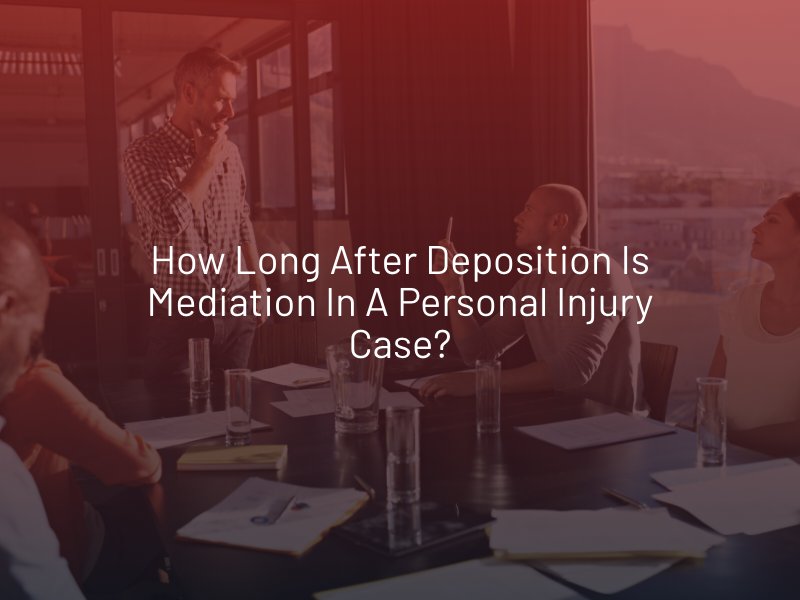How Long after Deposition is Mediation in a Personal Injury Case?
A common question when pursuing a personal injury case is how long it will take to get to the mediation phase once the depositions are complete. On average, mediation takes place between nine months and eighteen months after an accident. Unfortunately, there is no solid answer to precisely how long it will take after deposition because timelines can vary for every claim.

When Do Depositions Happen?
Once a summons is served to the defendant (at-fault party) to a personal injury lawsuit, they have a chance to file an answer. If their response signals their intent to defend the case, the discovery phase of litigation begins. Discovery is the formal exchange of information about evidence related to the case and witnesses. This phase gives each party the chance to see what the other will present at trial. As part of this process, depositions are taken to question witnesses.
What Happens after Deposition?
Each party will receive a copy of the transcript from the depositions then has a chance to look for inaccuracies or errors. Depending on the circumstances, the personal injury attorneys may need to depose more witnesses to establish an accurate picture of how the accident occurred or to dispute false information.
The defendant may then ask for an independent medical examination of the plaintiff (victim). This is a fairly common request, and the defendant’s insurance company typically chooses the doctor. The physician’s assessment will be used to compare it to the medical records provided by the plaintiff. The exam will be framed as unbiased, but the insurer intends to minimize their liability and see if the plaintiff slips up in their story.
Once both parties have finished gathering the evidence they need for their case, the discovery stage will end. As a whole, the discovery stage often takes up a large portion of the first year of a personal injury lawsuit.
Mediation
Once the discovery phase ends, and if a settlement has still not been reached, the court will likely request that the parties attempt a mediated settlement before attending trial. A neutral third party will serve as a “mediator” to facilitate conversations between the parties. Mediators are trained in negotiation and attempt to help the opposing parties work out a fair agreement. Most claims do not make it to trial because insurance companies generally try to avoid going if they can. Also, at this point, each side has an understanding of how a jury will view the evidence and probably decide the case.
What Happens if Mediation Doesn’t Work?
If an agreement cannot be reached through mediation, there are several choices for what comes next:
- Trial: The plaintiff’s attorney may recommend taking the claim to trial. Both sides will have a chance to lay out their cases and arguments, and then a jury will make a ruling.
- Back to Mediation: The parties can choose to restart the mediation process with a different mediator.
- Continue Negotiations: The parties may choose to begin negotiating again on their own in an attempt to reach an agreement without a formal proceeding.
If mediation or negotiations fail once again, the personal injury claim can still be taken to court.